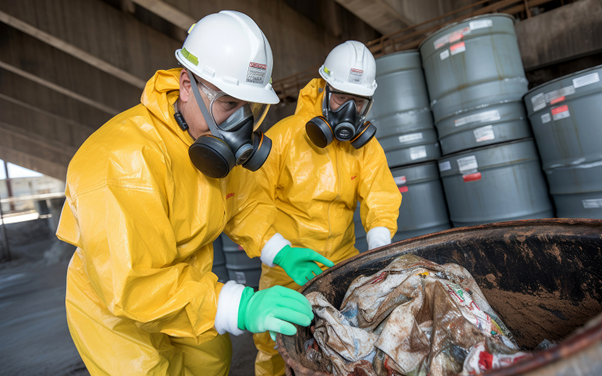
Starting any new project that involves biological materials, whether in healthcare, research, or specific industrial processes, requires a comprehensive grasp of disposal of biohazard waste in Singapore. This is not just about best practices; it’s an essential component of public health, environmental safeguarding, and adherence to the law. Before starting, it’s crucial to understand the intricacies of safely and effectively managing and disposing of biohazardous materials. In this guide, we’ll cover key aspects you must address to ensure your operations are conducted responsibly and in full compliance.
Identify and Segregate Your Biohazard Waste
Before any disposal, it is essential to correctly recognise what qualifies as biohazard waste in your particular situation. This encompasses all items that have been contaminated with blood, bodily fluids, human or animal tissues, microbiological cultures, or sharp objects (such as needles and scalpels). After identification, effective separation is crucial. Avoid combining biohazardous waste with regular waste. Utilise marked, leak-proof containers that resist punctures from sharp objects. Various classes of biohazard waste might need distinct collection and treatment approaches, making it crucial to grasp these differences from the beginning to avoid considerable issues later.
Understand Singapore’s Regulations and Guidelines
Singapore enforces strict rules for the management and disposal of biohazard waste, mainly supervised by the National Environment Agency (NEA). Prior to beginning, get to know the Environmental Public Health (Toxic Industrial Waste) Regulations and additional pertinent guidelines. These guidelines specify all aspects from packaging and labelling standards to transport and handling procedures for proper disposal of biohazard waste in Singapore. Unawareness of these regulations does not justify non-compliance, and consequences for breaches can be significant. Consistently monitor for changes to these regulations, since they may develop.
Implement Proper Handling Procedures
Safe handling of disposal of biohazard waste in Singapore goes hand-in-hand. This involves establishing clear protocols for all personnel who may come into contact with such materials. Training is essential, covering topics like the use of appropriate personal protective equipment (PPE), safe collection techniques, and emergency response procedures for spills or exposures. Minimising direct contact and preventing aerosol generation are fundamental principles to incorporate into your daily operations. A well-documented set of standard operating procedures (SOPs) will be invaluable here.
Choose Approved Disposal Methods
Not all waste disposal methods are suitable for biohazards. Common approved methods in Singapore include incineration, autoclaving, and chemical disinfection, depending on the type of waste. For instance, sharps are often incinerated to destroy contaminants and the physical sharps themselves. Ensure that whatever method you choose, or the method used by your chosen biohazard waste disposal companies in Singapore, is in full compliance with NEA guidelines and effectively renders the waste non-hazardous.
ALSO READ: Why Businesses Shouldn’t Handle Post-Incident Hazardous Waste on Their Own
Partner with Reputable Biohazard Waste Disposal Companies in Singapore
Given the complexities and regulatory requirements involved, it’s often most practical and safest to engage biohazard waste disposal companies in Singapore. When selecting a partner, look for companies with a proven track record of compliance, proper licensing, and adherence to all national environmental and public health standards. Inquire about their collection schedules, transportation methods, and disposal facilities. A reliable company will provide clear documentation, including waste manifests, that track your waste from your premises to its final, safe disposal point. This not only ensures compliance but also provides an audit trail.
Maintain Meticulous Records
Detailed record-keeping is a non-negotiable aspect of biohazard waste management. You should maintain records of the types and quantities of waste generated, collection dates, disposal methods used, and all relevant documentation from your disposal company. These records are crucial for demonstrating compliance during inspections, for internal auditing, and for tracing any issues should they arise. Digital record-keeping systems can be particularly helpful for managing this data efficiently.
Successfully managing the disposal of biohazard waste in Singapore requires proactive planning, a deep understanding of regulations, and a commitment to safety. By focusing on identification, proper handling, regulatory adherence, and partnering with experienced biohazard waste disposal companies in Singapore, you can ensure your operations are not only efficient but also safeguard public health and the environment. Prioritising these aspects from the very beginning will set a solid foundation for responsible and compliant waste management practices.
Contact BELFOR Restoration Services to learn more about compliant and safe biohazard waste disposal solutions.
